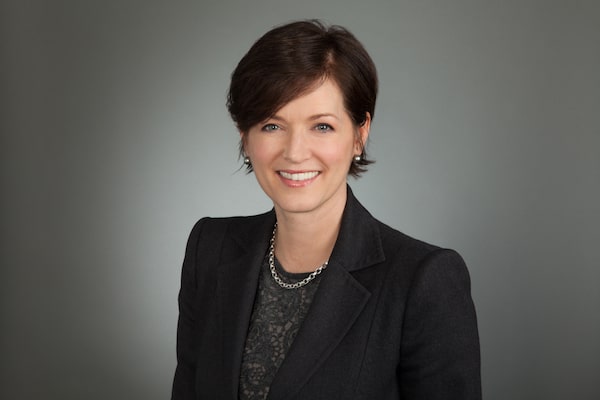We are nearing exactly one year of a global pandemic, and in that time frame, many things about our world have changed. I was only seven months into my role as the first female president and CEO of CFA Institute when COVID-19 started to shut down our world. As a new CEO, I had been travelling the globe to meet our teams when the pandemic put a stop to my plans.
Although I didn’t realize it instantly, that enforced time-out proved invaluable. As we celebrate International Women’s Day today, I would like to reflect on what I learned in those frenetic early months, what is still yet to be done for women in the workplace and offer three lessons for progressive leaders to take away.
Leadership styles must evolve
This is not going to happen overnight – as leaders we must give ourselves the time to adjust over several periods or phases. The first phase is almost instinctive and entirely focused on the initial crisis response – quantifying and managing the risks, communicating regularly, developing contingency plans and assessing the impact on your operations and finances.
However, as the year progressed and the duration and scale of the pandemic became clear, it was crucial for leaders to learn to adapt, improvise and use all their senses, while challenging norms and making consequential decisions in the face of maximum uncertainty. It showed us that it is important to be more open-minded and agile and to have the courage to execute on ideas where you have clear conviction – and, most important, not to let perfect get in the way of good.
The pandemic has taught us to steel ourselves and prepare for failure while embracing the ongoing learning opportunities offered by operating in a crisis.
Nurturing internal communities is key to retaining top talent
Companies face a material challenge of losing employees who have increased responsibilities in their home life because of the pandemic – elder care, childcare and much more. In fact, a recent report on the impact of COVID-19 on women in work by PwC found that “women are disproportionately affected by the pandemic.” They are taking on the burden of unpaid care, and in some cases, dropping out of the workforce altogether to deal with myriad family issues. This represents a real loss to the workforce and a tremendous challenge for companies.
One counterbalance, in small part, is for companies to do more to create internal communities, support groups and networks. These groups can help staff support one another and cope with the unique challenges of our time. These communities can be a starting point for deep, honest and supportive conversations, especially when it comes to helping each other navigate the realities of working from home and supporting flexible work arrangements.
The optimist in me observes that leaders have seen the benefits of both working from home and of flexible work arrangements. Although not without considerable challenges, we transitioned to remote work rather seamlessly, but it requires effort to sustain it. That said, it bodes well for the future that in office “face time” does not have to be a prerequisite for success.
Diversity and inclusion must be embedded in an organization’s foundation
When it comes to diversity and inclusion in the workplace, it is important to measure what matters – not what is convenient – and this includes conducting a pay gap analysis and committing to strategic action items. Business diversity is also critical and a key component of this is proactively considering women- and minority-owned business partners.
The impact of the COVID-19 pandemic has shown that those firms that already had diversity and inclusion embedded in their organizations fared better and were more adaptable in the face of the pandemic. And they were able to capitalize on the teams who brought varying perspectives to the organization – an incredibly important lesson that survives far beyond this moment in time.
It has not been an easy period for leaders or anyone, wherever in the organization they are. Yet from top to bottom, this experience uniquely binds us together and we have gleaned important lessons on leadership, inclusion, and diversity during this challenging time.
On this International Women’s Day, I invite you to reflect on the gains of women in the workplace while reminding ourselves of how far we collectively still must go, something that has been made even more apparent by a global pandemic that will continue to have significant and profound implications on the workforce for years to come.

Liz Floyd/Supplied
Margaret Franklin is the President and CEO of the CFA Institute, a not-for-profit professional organization that provides investment professionals with finance education. She is the leadership lab columnist for March, 2021.
This column is part of Globe Careers’ Leadership Lab series, where executives and experts share their views and advice about the world of work. Find all Leadership Lab stories at tgam.ca/leadershiplab and guidelines for how to contribute to the column here.
Stay ahead in your career. We have a weekly Careers newsletter to give you guidance and tips on career management, leadership, business education and more. Sign up today or follow us at @Globe_Careers.